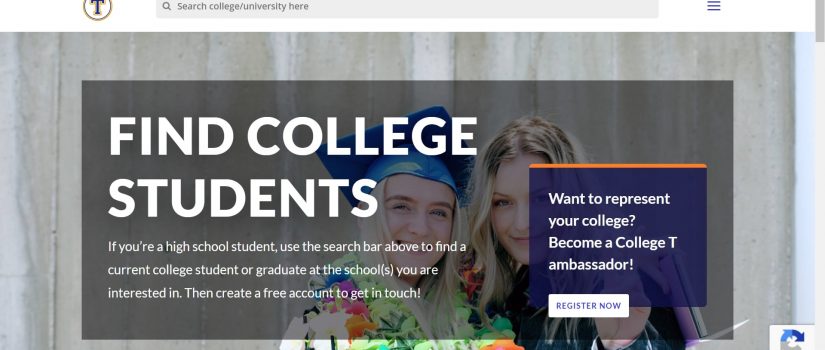Could COVID Impact Transfer Admissions?
Our COVID reality has not only impacted admissions for future college freshmen. It is about to impact transfer admissions as well.
Imagine being a sophomore in college, whether it be community college or a four-year school. Two or three semesters of your college education have been online. Your college has told you that campus life will be closer to “normal” for the fall. But no one who handles transfer admissions can know that for sure.
If you ever wanted to change schools, this is the time to consider where you want to go next.
If you are thinking of changing schools, and going through transfer admissions, here are some questions to ask and answer:
Will your credits transfer with you?
If your intention is to enter your new school as a junior, and costs are a concern, you want credits to be applied as seamlessly as possible. You intended for your journey to take four years or maybe four and a half. If you are entering a new college as a junior, you want to get right into the courses in your major. Do you have the pre-requisite courses out of the way?
What do you like and dislike most about your current school?
I doubt that many college sophomores signed up for an online educational experience. But aside from that, what else do you dislike enough to make you want to leave?
What could another school do better?
This is where you need to consider what you want from a new educational experience. If you never lived on campus, do you want to be in a residence hall? Are you seeking smaller, in-person classes in your intended major? Are you interested in a major that your current school doesn’t offer? If you fear that courses may go back online, would you prefer a school that will charge you less for the credits?
How did your target schools handle COVID?
Not every college was equally prepared to de-densify residence halls, handle testing or administer vaccines. If you are thinking about transferring you want to feel confident that your new school will be less likely to revert to an online or hybrid experience.
Will your target schools ask for high school grades and test scores as well as college grades in transfer admissions?
Those who have earned Associates degrees from a community college will not need to worry about this. But those who are switching from one four-year college to another might, depending on the school. If you did not do well on the ACT or SAT the first time, and want to change schools, check to see if your target school is test optional for transfer students.
Suppose you are in community college, which schools are the most accommodating to a transfer student?
Depending on the state where you live, different community colleges have different agreements with four-year colleges. For example, if you live in Burlington, Cumberland or Gloucester Counties in New Jersey, Rowan University runs the community colleges and makes it easy for students to move into four-year degrees. In Mercer County, the community college has Guaranteed Transfer Admissions Agreements for students who have less than 30 credits and numerous transfer agreements by major.
Will transfer admissions be easier or harder over the next two or three admissions cycles?
It’s tough to tell. The more selective private colleges and most flagship state universities appeared to have no problem attracting freshman applicants during our COVID reality. Those who get into those schools are likely to stay. Schools like Rutgers-New Brunswick or The College of New Jersey, had freshman retention rates that were already around 95 percent. The more selective schools that you’ll know by name do even better.
My feeling is that the best bets for transfer will be:
Liberal arts colleges and mid-sized schools that can offer scholarships.
These will not be the most selective. But they are many that are just as effective at guiding people to a degree, direction and network for life. One consideration: when you get beyond the most selective schools the alumni bases of most national liberal arts colleges and many national universities tend to be regional, closer to campus. So, if you want to work in New York City, for example, after graduation, it really helps to choose a school with alumni connections and career development programs that take you there.
Flagship state universities that have to rely on non-residents to fill their enrollment.
While some state schools attract most of their transfer students from the community colleges in their states, other states need to cast a wider net and try to entice non-residents to come. The University of Delaware, for example, gets three quarters of its students from other states; the community college system there is quite small. However, I suggest that those targeting a flagship school be prepared to live off campus. They will want to do all they can to help assure a true college experience for their incoming freshmen first.
Being from New Jersey, the 11th most populous state, I am amazed that so many smaller states have more than one flagship state university. Oregon, for example, has less than half as many people as New Jersey, and it has two, the University of Oregon and Oregon State University. The University of Oregon gets over 40 percent of its students from other states. Oregon State gets a third. This does not include students who come from other countries. These schools will continue to need non-residents; they could never fill a class entirely from in state.
Regional public colleges that offer the choice between the online and the on campus experience over the course of a degree program.
These schools become a better bet if they can help students to find work that builds a resume and helps cover educational costs. However, regional schools also have most of their alumni base close to campus.
It might be quite tempting to change colleges based on your experiences over the first year or two at your current school. However, the people who manage transfer admissions are not only looking to fill a sophomore or junior class. They are also looking for people who want to come to their school for good reason, with an intended major and direction, and are mostly likely to finish a degree.
Need help on the journey to college? Contact me at stuart@educatedquest.com or call me at 609-406-0062.
Want to know more about me? Check out these podcasts!
Listen to my talk, College Is A Learning AND Living Community, hosted by Dr. Cynthia Colon from Destination YOUniversity on Voice of America Radio!
Listen to my talk, What Exactly Is a Good College? hosted by test-prep experts Amy Seeley and Mike Bergin on Tests And The Rest!


